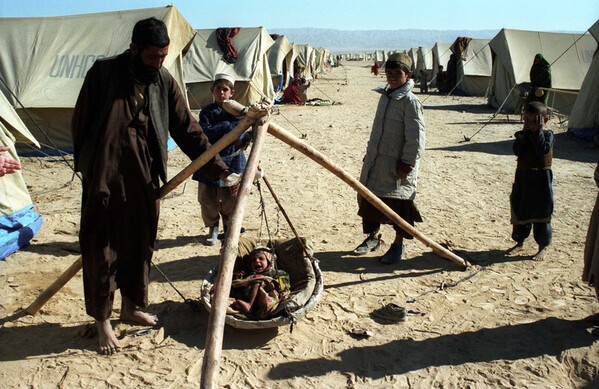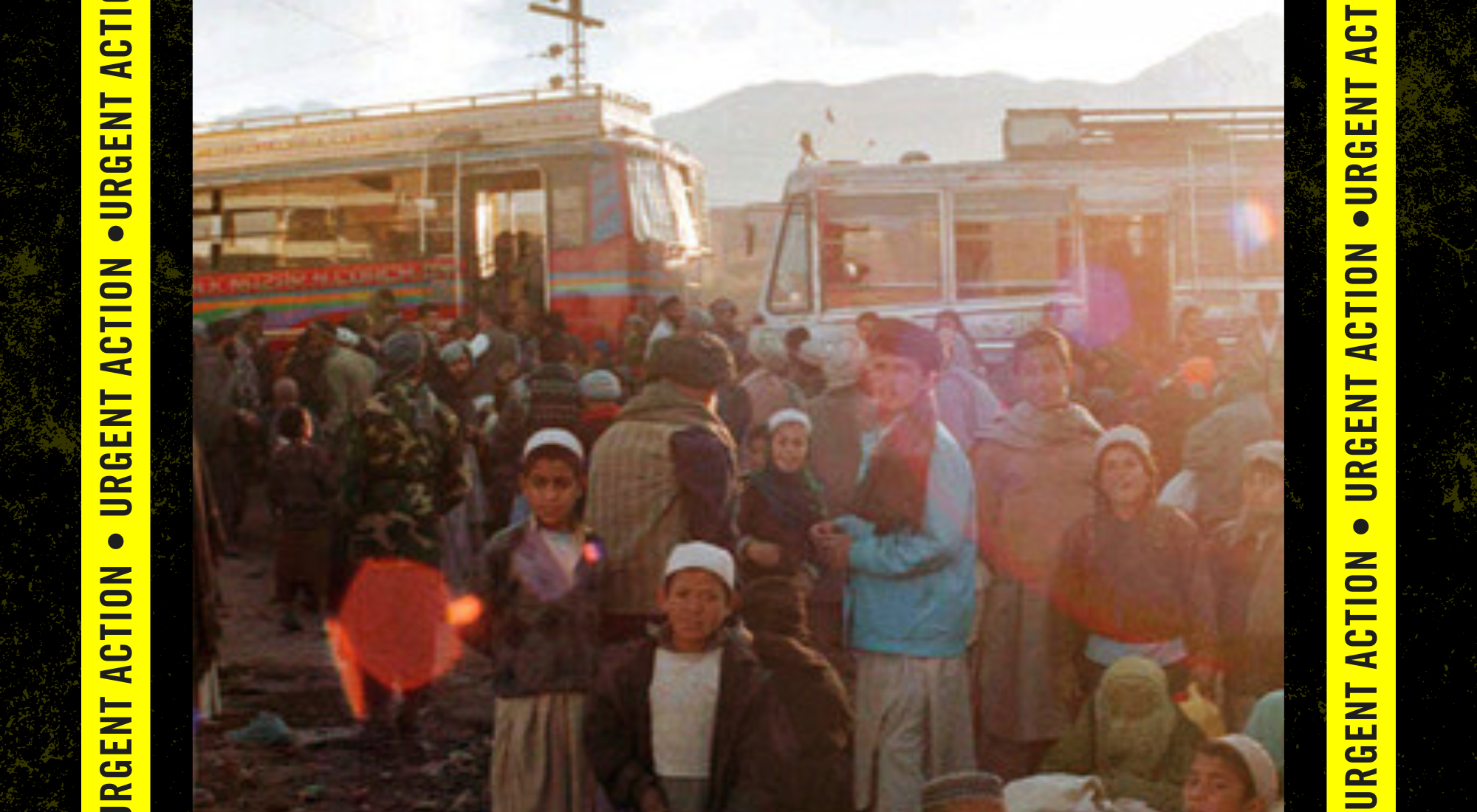Since Pakistan introduced its “Illegal Foreigners’ Repatriation Plan” in October 2023, more than 1 million Afghan refugees and asylum seekers have been forced to return to Afghanistan. This mass return violates international law, particularly the principle of non-refoulement, which protects people from being sent back to places where their lives or freedoms could be in danger.
The plan is being rolled out in three phases. It targets Afghans who are unregistered, those with Afghan Citizen Cards, and finally those holding Proof of Registration (PoR) cards. These PoR cards—issued by the UN Refugee Agency—are held by at least 1.4 million Afghan refugees. But they are set to expire on June 30, 2025.
Pakistan must protect the rights of refugees and immediately halt all deportations and renew the PoR cards before the deadline.
Here’s what you can do:
Write to the Minister of Interior urging the Pakistani government to:
- Renew the validity of Proof of Registration (PoR) cards for Afghan refugees.
- Withdraw the ‘Illegal Foreigners’ Repatriation Plan’ and stop all forced returns to Afghanistan.
- Immediately end the ongoing crackdown on Afghans living in Pakistan.
Write to:
Minister of Interior
Syed Mohsin Raza Naqvi
4th Floor, R Block, Pak Secretariat,
Constitution Ave, G-5/1,
Islamabad, Pakistan
Email: secretary@interior.gov.pk
X: @MohsinnaqviC42
Salutation: Dear Honourable Minister,
And copy:
His Excellency Muhammad Saleem
High Commissioner
High Commission for the Islamic Republic of Pakistan
10 Range Road
Ottawa, ON K1N 8J3
Tel: (613) 238-7881, -7882, -7883 Fax: (613) 238-7296
Email: pahicottawa@mofa.gov.pk
Mass deportation plan announced
In October 2023, Pakistan’s interim government announced the Illegal Foreigners’ Repatriation Plan -a three-phase plan to deport Afghans living in Pakistan. The first phase targeted unregistered Afghan nationals, giving them 30 days to leave the country or face deportation. Following the announcement, over 468,000 Afghans returned to Afghanistan between October and December 2023.
This was accompanied by widespread harassment and arbitrary arrests of Afghans across Pakistan. Since then, many Afghan refugees and asylum seekers have been living in constant fear and uncertainty.
Card holders targeted in second phase
The second phase began on April 1, 2025. This stage focused on deporting about 800,000 holders of Afghan Citizen Cards (ACC)—documents issued by the Pakistani government between 2017 and 2019.
The government also announced plans to remove all Afghan nationals from the cities of Islamabad and Rawalpindi. In addition, it ordered Afghans awaiting relocation to third countries or those with pending visa applications to leave by the end of April 2025.
Authorities warned of “intense” action after the deadline passed. As of June 7, 2025, over 1,088,000 Afghans had returned to Afghanistan from Pakistan, according to the UN’s International Organization for Migration.

Third phase to affect UNHCR-registered refugees
The final phase is expected to target Afghan refugees who hold Proof of Registration (PoR) cards. These are identity documents issued by the UN Refugee Agency (UNHCR).
More than 1.4 million Afghans in Pakistan have PoR cards. These cards were initially set to expire in June 2024, but the government extended their validity for one more year, until June 30, 2025. If Pakistan does not renew the cards again, the legal status of those holding them will be unclear—and they may face deportation next.
Risk of human rights violations
Afghan refugees and asylum seekers risk serious harm if returned to Afghanistan, where the Taliban remain in control.
Amnesty International has documented widespread human rights abuses under the Taliban. These include killings without trial, torture, forced disappearances, and arrests of journalists, human rights defenders, protesters, artists, and former government workers.
Between April 1 and June 7, 2025, over 51,000 women and 64,000 girls were forced to return to Afghanistan. Many will face discrimination and restrictions. The Taliban have issued more than 70 edicts limiting the rights of women and girls, banning them from most education and employment, and removing them from public life.
Global response and legal obligations
In January 2025, the International Criminal Court (ICC) prosecutor filed arrest warrants for the Taliban’s Supreme Leader, Haibatullah Akhundzada, and Chief Justice, Abdul Hakim Haqqani. They were accused of crimes against humanity, specifically gender persecution.
In April 2025, several United Nations experts urged Pakistan to stop deporting Afghan nationals. These experts included the Special Rapporteurs on Afghanistan, human rights, and violence against women and girls, among others.
International law forbids the forced return of people to places where they may face harm—a principle known as non-refoulement. It applies to all countries, including those that haven’t signed the 1951 Refugee Convention. Pakistan is also a party to key treaties, including the International Covenant on Civil and Political Rights and the Convention Against Torture, both of which reinforce this obligation.
Please take action as soon as possible until September 15, 2025. The UA will be duly updated should there be the need for further action.




























